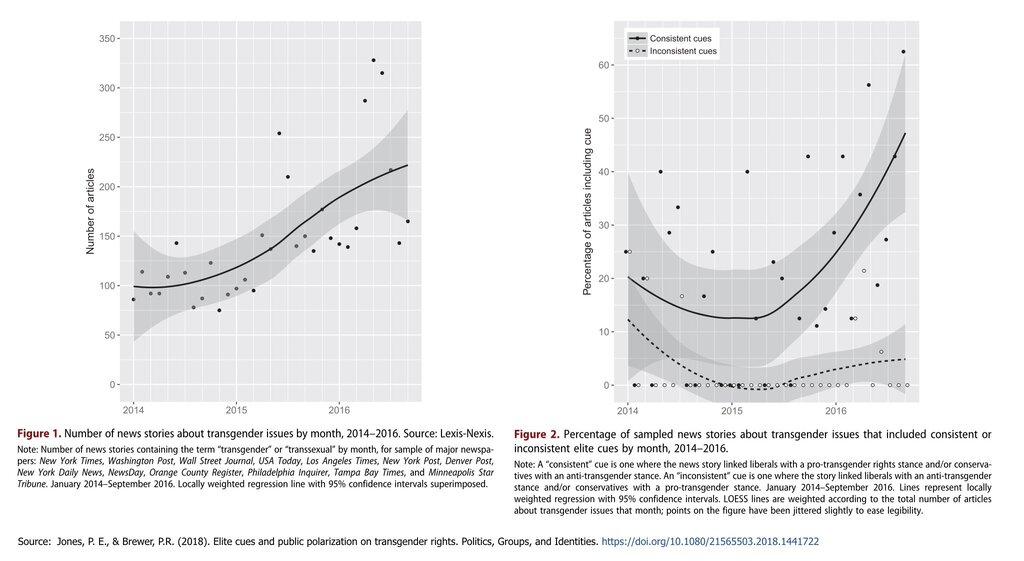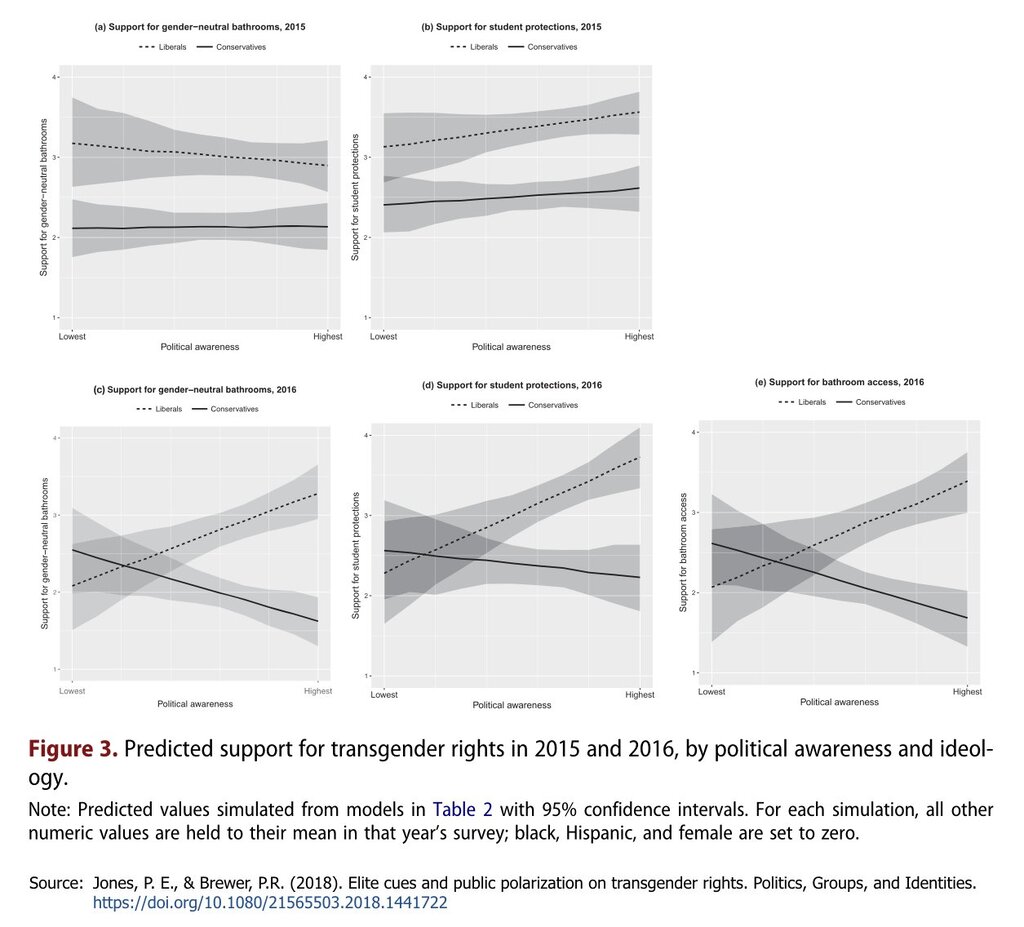University of Delaware Professors Research Public Opinion on Transgender Rights : Partisan Cues and Transgender Rights
Political messages polarize public opinion on transgender issues
By Charles J. Mays, CPC Graduate Student Fellow
MARCH 20, 2018″New research by two University of Delaware professors has found that individuals form increasingly polarized opinions about transgender issues in response to the cues of liberal versus conservative political leaders. Phil Jones (Political Science and International Relations) and Paul Brewer (Communication) analyzed recent public opinion in their new article, “Elite cues and public polarization on transgender rights,” published in Politics, Groups, and Identities. Their research adds to the emerging work on transgender rights and provides interesting insight into how public opinion is formed on this issue. Using data from cross-sectional surveys, Drs. Jones and Brewer demonstrated “polarization effects” when politically engaged individuals responded to ideologically divided elite cues. By tracking the cues of liberal and conservative political elites on transgender issues across years 2014?2016, Drs. Jones and Brewer measured how public opinion on transgender rights changed in response to the cues of political leaders. Their research indicated that Americans are increasingly more polarized and that this polarization is concentrated among those more responsive to, or aware of, the cues of political leaders. These political elites thereby become increasingly important in shaping future public opinion on policy issues facing transgender Americans, including access to bathrooms and protections for transgender students. Increasingly polarized political messages from elites are likely to continue to maintain a rift in public support for transgender rights, but more politically moderate attitudes are likely to result in a convergence of public opinion thereby creating a general public consensus on transgender rights.


